It has been a good year for those who like a large slice of their Isas and pensions to be invested in the UK stock market. The FTSE 100, an index comprising the largest businesses listed in the UK, is up 8 per cent – and while one swallow doesn’t make a summer, the portents are looking good.
The UK economy is in modest growth mode (even the doom mongers at the International Monetary Fund are predicting 0.7 per cent economic growth this year) while inflation (2.3 per cent) is edging closer to the 2 per cent target set for the Bank of England by the Government. Interest rate cuts are also on the horizon although the outcome of the July 4 General Election may push them back.
This more favourable economic backdrop, combined with a stock market that is cheap compared to international rivals, is prompting some financial institutions to declare that UK equities represent the best investment play in town. The latest to express such a positive view is HSBC. A few days ago, it said that now was a ‘golden opportunity’ for investors to buy British.
For investors, a straightforward way to buy the UK stock market is through a fund that tracks the FTSE 100 Index or the wider FTSE All-Share Index.
But a potentially more rewarding strategy is to try and identify those companies, many with iconic brands, that are in great shape to benefit from an improving economy and whose shares could perform particularly well as investors (large and small) return to the UK stock market in swathes.
So, I asked a mix of fund managers and investment experts to name those ‘great’ British institutions whose stock market fortunes could now prosper on the back of an enticing mix of good financial numbers, improving business prospects and a healthier UK economy.
Below are the companies – the UK’s own version of the ‘magnificent seven’ – that the experts believe best fit the bill and would sit nicely inside your Isa, self-invested personal pension or share portfolio. By ‘magnificent seven’, I am referring to the seven tech stocks that have been responsible for the strong performance of the US market: Alphabet, Amazon, Apple, Meta, Nvidia, Microsoft and Tesla.
A word of caution. Nothing is guaranteed when it comes to investing, so, only invest if you are prepared to ride out stock market volatility. Remember, we live in uncertain times – politically and geo-politically – which means the propensity for markets to be spooked remains high.
1 M&S

M&S says it is in the strongest financial health since 1997
On the same day as Rishi Sunak called a General Election, retailer Marks & Spencer reported splendid financial results for the year to the end of March – a profits jump of 58 per cent to £716million.
The company said it was in the strongest financial health since 1997 with boss Stuart Machin proclaiming: ‘I think we’re at the beginning of a new M&S. We are becoming more relevant, to more people, more of the time.’
The company’s shares temporarily reached their highest level (£3) for six years, before falling back a tad. But experts believe there is scope for the shares to advance even further.
Sam North, analyst at investment trading platform eToro, says: ‘M&S has streamlined its operations, improved its product offerings, and enhanced its online presence.
‘As the company evolves and adapts to changing consumer demands, its stock market fortunes are likely to improve.’
Imran Sattar, manager of £1.1billion investment trust Edinburgh, also believes the ‘sparkle’ has returned to M&S.
Sattar says: ‘There is plenty of opportunity still ahead of M&S, particularly on the digital and technology side, to support strong cash generation in the years to come.’
One big plus for investors is that the company is paying a dividend again after three years of not paying a dime. The dividend for the financial year just ended was 3pence a share with the shares closing on Friday at £2.99.
2 GREGGS
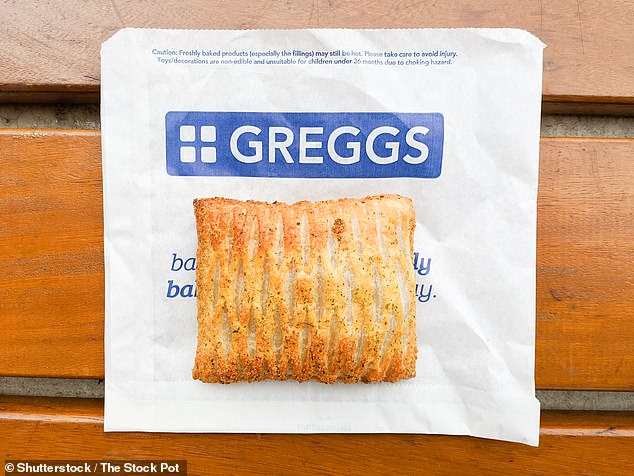
Value for money is why this baker is so successful in getting customers through its doors
It’s rare these days to walk down a high street without stumbling across (and then walking into) a Greggs store. They are everywhere.
Value for money is why this baker of mouth-watering pastries, pies and cakes is so successful in getting customers through its doors. It also explains why sales continue to increase despite a challenging economic backdrop – they were up more than 7 per cent in the first 19 weeks of the year.
Dan Coatsworth, investment analyst at investment platform AJ Bell, says an improving economy and more money in consumers’ pockets would be great for Greggs.
‘It would create the kind of aroma around the business when a loaf of bread is baking,’ he says. ‘A warm, satisfying feeling that could send investors reaching for the ‘buy Greggs’ button.’
EToro’s North says the company’s finances are ‘robust’ and management has a ‘clear growth strategy’. He believes there is no reason why the shares – trading at £28.72, 8 per cent up over the past year – cannot advance back to their 2021 high of £34.30.
In its 2023 financial year, the FTSE 250-listed company paid shareholders dividends of £1.02.
3 ROLLS-ROYCE HOLDINGS
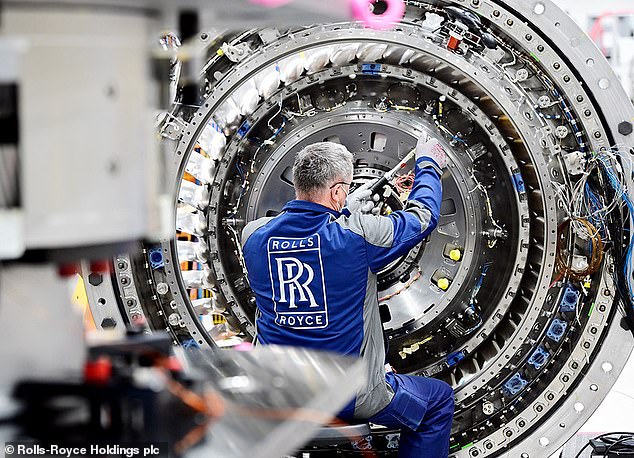
Rolls-Royce has seen its share price increase by 187 per cent over the past year
Jason Hollands, a director of wealth manager Evelyn Partners, describes aerospace and defence giant Rolls-Royce Holdings as ‘an iconic and blue-blooded British brand that has delivered investors ‘magnificent seven–like’ returns in recent years’.
Hollands is spot on. The FTSE 100 company has seen its share price increase by 187 and 430 per cent over the past one and two years. But he believes there is more to come as the company benefits from increased defence spending – not just in the UK, but globally.
Susannah Streeter, head of money and markets at investment platform Hargreaves Lansdown, agrees. She says: ‘The company boasts a multi-billion-pound order book which bodes well for future revenues. With defence budgets swelling across the world, this puts the company in an even stronger position.’
Investors could be concerned that the shares – closing Friday at £4.45 – look expensive historically. But eToro’s North is convinced that the company’s commitment to reducing emissions and improving the fuel efficiency of the products it builds should drive forward both long-term business growth and future stock market performance.
The company has not paid a dividend since 2019.
4 SHELL
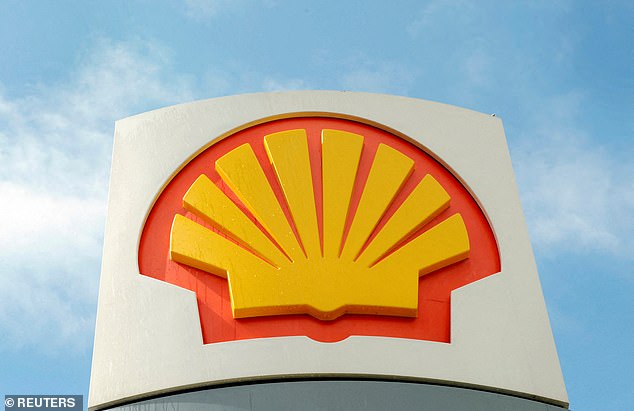
Shell has not ruled out switching its stock market listing from London to the United States
Shell is not every investor’s cup of tea. Its emphasis on oil and gas production deters those who employ strict ESG (Environmental, Social and Governance) criteria to govern what companies they invest in.
It has also not ruled out switching its stock market listing from London to the United States to attract more investor attention.
Yet Shell, with its iconic logo – and, yes, I know, its origins are Anglo-Dutch – is highly regarded by investment experts, especially as a source of rich dividends.
Russ Mould, investment director at AJ Bell, says: ‘Demand for oil and gas is still growing and that trend could become more pronounced in the event of a robust economic upturn. With natural gas prices rising and oil prices firm, this should mean bumper profits for Shell – and more importantly as far as investors are concerned, growing dividends.’
The shares ended Friday at £27.72 and the dividends it pays are equivalent to an annual income of 3.7 per cent.
‘Its shares look cheap,’ says William Lamond, investment director of London based Oakglen Wealth, ‘especially when compared to its peers in the United States such as Chevron and Exxon.’
5 NATWEST
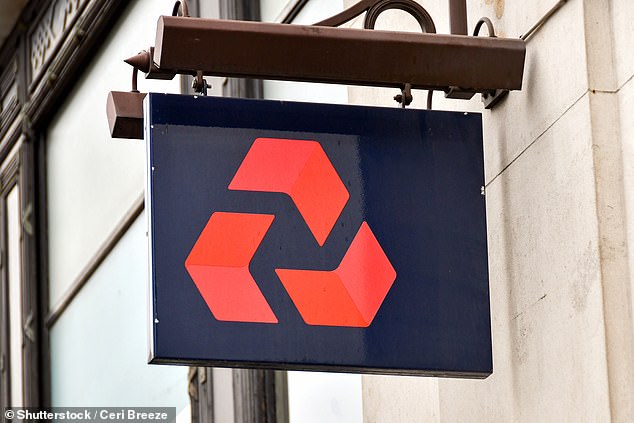
Investment trusts F&C and Temple Bar hold NatWest in their portfolios
Although the scheduled summer sale of the Government’s stake in NatWest now looks to have been abandoned because of the General Election, experts still like the bank’s shares.
An improving economy and lower interest rates, they say, would improve demand from borrowers for both its mortgages and small business finance.
Investment trusts F&C and Temple Bar hold NatWest in their portfolios. Paul Niven, manager of F&C, bought NatWest shares for the first time in a decade last October at £2.16. They are now just above £3.07, but he says they are still cheap while offering investors an attractive annual dividend equivalent to 5.5 per cent.
Ian Lance, co-fund manager of Temple Bar, agrees. He says that the business is unrecognisable from the one that had to be bailed out during the 2008 financial crisis.
He adds: ‘This year should see the bank make a healthy net income of £4.5billion [the difference between the income it earns from borrowings and pays savers in interest]. It’s so well capitalised that it has been buying back its own shares, enhancing both earnings and dividends per share. A true revival in one of the UK stock market’s best-known companies.’
6 ASTRAZENECA
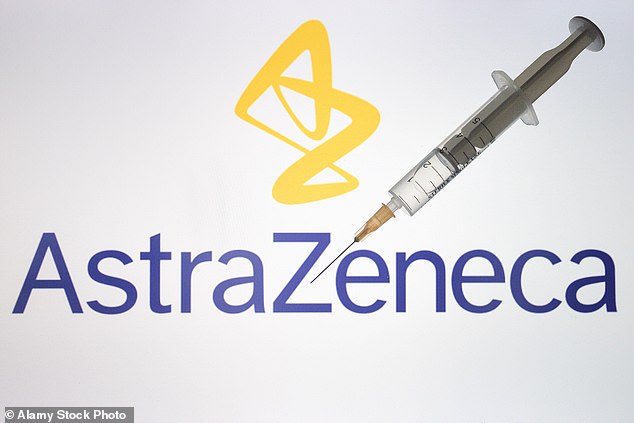
AstraZeneca is confident of generating annual revenues of £63 billion by 2030
Evelyn’s Hollands believes the world is on the cusp of a healthcare boom – and AstraZeneca, headquartered in Cambridge, will be one of the main beneficiaries.
He is excited by the fact that the company is confident of generating annual revenues of £63 billion by 2030, helped by a pipeline of 20 new drugs designed to help people manage with conditions such as diabetes.
He adds: ‘It is also entering the weight-loss market with a pill licensed from Chinese firm Eccogene – and has taken a stake in Swiss biotech firm SixPeaks Bio, specialising in anti-obesity therapies.’ Shares are up 14 per cent this year, closing Friday at £122.96.
7 BRITVIC
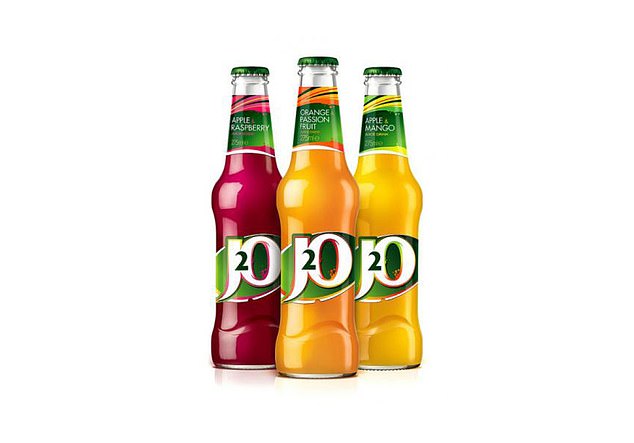
Brivic owns numerous well-known brands such as Ballygowan Water, J20 and Robinsons
Soft drinks business Britvic has been around since the 1930s. It owns numerous well-known brands such as Ballygowan Water, J20 and Robinsons. Half-year results published earlier this month show that the company is in good health with both revenues and profits increasing.
David Smith, manager of investment trust Henderson High Income, says the business has been transformed under the leadership of Simon Litherland with manufacturing facilities invested in, new brands created, and the marketing of products improved.
He adds: ‘I am confident Britvic now has the potential to deliver sustainable higher growth.’
Shares in the FTSE 250 company are up nearly 20 per cent this year at £10.05. In the last financial year, it paid a dividend of 30.8p a share.
Some links in this article may be affiliate links. If you click on them we may earn a small commission. That helps us fund This Is Money, and keep it free to use. We do not write articles to promote products. We do not allow any commercial relationship to affect our editorial independence.



